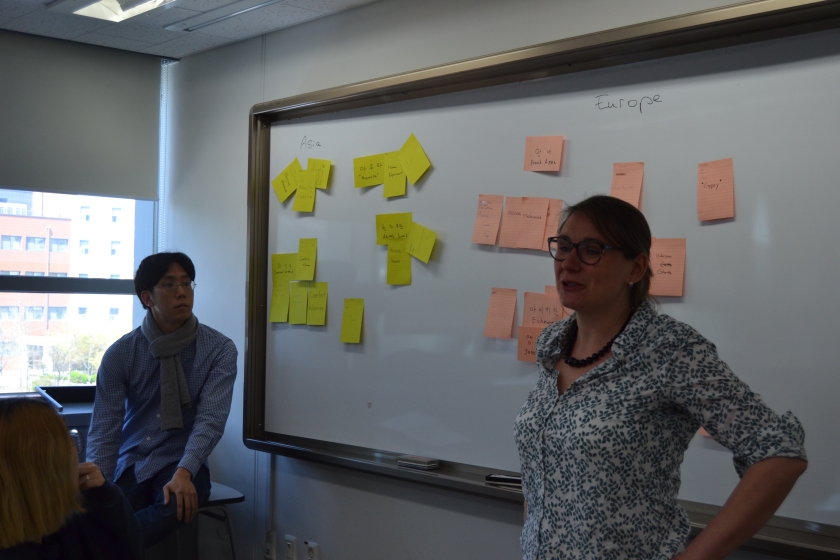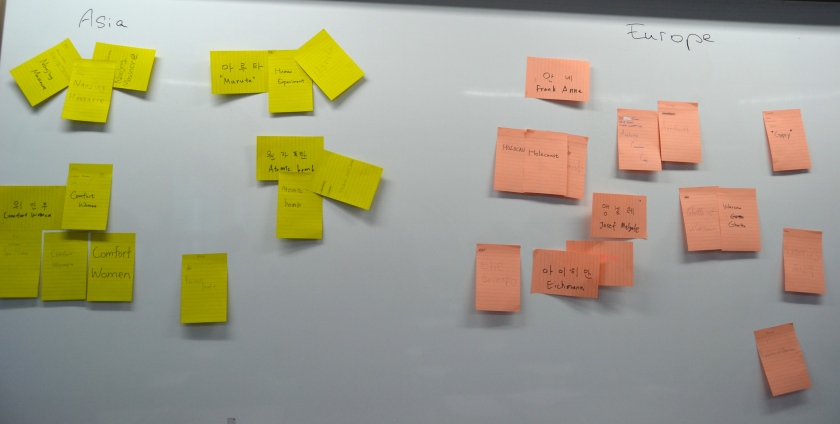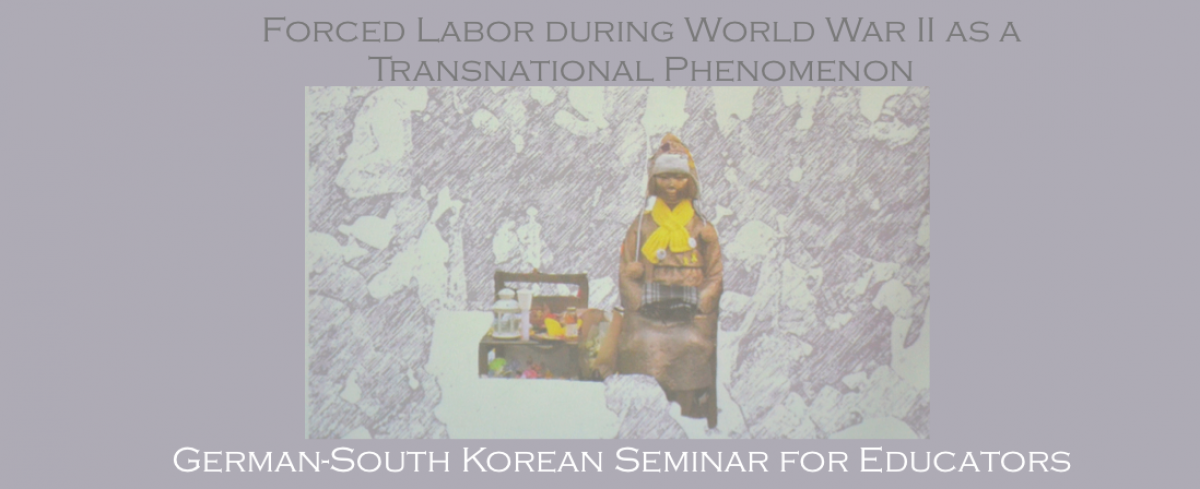Class visit: Undergraduate Course “Memory of the World Wars”
On Wednesday we visited Prof. Jie-Hyun Lim’s class for undergraduate students. Our short lecture (duration 75 Min) we headlined : Maps of memorating the 2nd World War. A short introduction in the topic of forced labour in comparison of the Asian and European context.
Concept
Our introduction we named “Mapping of Memories regarding ‘Crimes against Humanity’ in the 2nd World War”. As an introduction we asked the students: “Crime against humanity in 2nd World War: What comes to your mind. Name three items for Asia (write down on green cards) and three for the European context (red cards), e.g. places, events or terms”. They worked together in five small groups discussions to gather ideas. This first part lasted 25 minutes. Secondly two of our group gave a short lecture (duration: 40 minutes) of the topic forced labour in the Asian and European context and Introduction to our joint seminar. And afterwards we had a discussion and introduced our project.
Results
The listed crimes we clustered for the two contexts and interesting but not really surprisingly the students mainly named the Holocaust linked to Auschwitz for the European context. One card also they named the extermination of the so called gypsies, the experiments and killing of the disabled people and the bombing of the city of Dresden.
In Asian context, most of them named the ‘Comfort Women’, since this issue is now politically on debate. They also named Nanjing Massacre which Iris Chang called as ‘forgotten Holocaust’, and usage of atomic bomb on Hiroshima and Nagasaki. Similar to European context, human experiment, so called ‘Maruta’ was on the list too. Finally, just one named Forced draft.
This short introduction showed that among the small groups few aspects of history are remembered and others not even come to mind. And we as the members of the joint seminar thought these result can be generalist. When asking a German class we could receive a similar result regarding to the European context (Probably the Asian context is not well known). In Korean class we could receive a result focusing on what Korean nation had suffered in a nationalistic context. So as a transition for the short lecture we asked if they know something about forced labour and if so, why they didn’t name forced labour as a crime against humanity neither for the European nor for the Asian context considering forced labour caused many victims. Why there’s this lack of memory although it is such an important issue in history?
The short introductions of the both contexts dealt with similarities on each site. The presented topics were: recruiting process, groups of forced labourers, working and living conditions and hierarchy of forced labourers.
In the discussion at the end we stressed out that in our joint seminar we do not raise theoretical question like for example, work in a philosophical perspective, but that we try to draw lines to what can we learn from the history for our nowadays societies, so especially the question if obeying to authorities or even to capitalism can lead to a modern version of forced labour. In our joint seminar we also do more discuss how we deal with the issue of forced labour in our different professions like educators or curators but not so much to give a common definition or draw out idealist archetypes in a theoretical manner. In this manner, what we have done in Berlin and Seoul, and what are the aims for our joint seminar was explained to the students. Also the students wanted to know about our feelings after we visited the “Wednesday Protest” for ‘Comfort Women’ Issue. So for us it was really impressive that for so many years (since 1991) the protest is going on. That we got a sense that is really empowering.
The interest of this topic was given and the discussion was lively and enlightened. So we hope that for the next project in the following years some of these students are willing to join.


